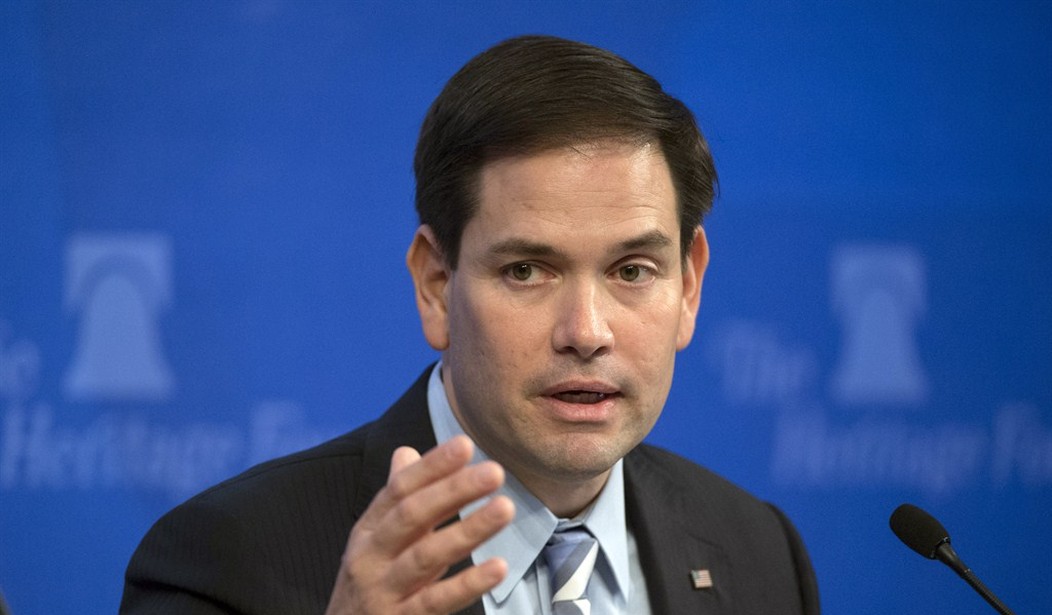If you haven’t heard of the Export-Import Bank Of The United States (Ex-Im), you’re not alone. It wasn’t until recently that this institution founded in 1934 became something of a front-and-center issue for conservatives. According to their website, the Ex-Im Bank “is the official export credit agency of the United States. Ex-Im Bank's mission is to assist in financing the export of U.S. goods and services to international markets. Ex-Im Bank enables U.S. companies — large and small — to turn export opportunities into real sales that help to maintain and create U.S. jobs and contribute to a stronger national economy.”
That sounds great, until you basically find out it's an arm of crony capitalism.
During a media call last week, Luke Hilgemann, Americans for Prosperity’s Chief Executive Officer, said the Ex-Im Bank is one of the top priorities for AFP’s legislative agenda. He called the institution the definition of corporate welfare, and the damage it can do to taxpayers and small businesses across the country. He added that all that crony capitalism does is get in the way of the free market and end future economic opportunities for everyone; it’s damaging our chances for a vibrant economy.
Since the 1990s, the Ex-Im Bank has been doling out cash, billions in taxpayer-backed loans to foreign corporations. It should not be the taxpayers’ responsibility to foot the bill for these risky foreign projects.
Brent Gardner, AFP’s Vice President of Government Affairs, noted the organization’s efforts to build a grassroots army to break the bank. It’s a fight that’s been lasting a little over a year, said Gardner–who also added that this is another example of the government picking winners and losers. He also added that some of the investments of the Ex-Im Bank are so risky that normal lenders won’t touch them.
The good news is that the bank is set to expire on June 30. Additionally, AFP’s concentrated grassroots and social media campaign against the bank led to it shortest reauthorization in its history.
Now, what about reform? Gardner said that this has been tried before; an inspector general noted that the accounting problems are so deep with the Ex-Im Bank that there’s no end in sight. They can’t find the bottom. Moreover, it’s led to corruption. Last week, the FBI announced that an Ex-Im Bank loan official pleaded guilty to accepting more than $78,000 in bribes. Nevertheless, the special interests that have an interest in the bank’s continuation have spent tens of millions of dollars lobbying against the anti-Ex-Im Bank push.
Recommended
Gardner then plugged the AFP website on the matter: www.break-the-bank.org.
Potential presidential candidates have been asked about their stance on the Ex-Im Bank–it’s becoming a salient issue on the right.
Sen. Marco Rubio is one of those in Congress–and now running for president–that supports ending the funding for the Ex-Im Bank. The senator reiterated the AFP position of being against corporate welfare, and also for being for better trade deals which he thinks benefits all our industries. He admits that he represents a state that has benefitted from the Ex-Im Bank; Florida is the second largest recipient of Ex-Im bank money. Yet, he knows the bank doesn’t save the taxpayers money. In real accounting, Rubio says, the bank costs taxpayers $200 million a year. It doesn’t help American small businesses, which receives virtually no economic benefit from the institution, whereas large corporations receive 75% of total assistance from the Ex-Im bank. Sen. Rubio also said that Ex-Im doesn’t create jobs–and it doesn’t promote exports.
He said the bank should be allowed to expire–and it’s not a hard legislative maneuver. Congress just needs to let it expire on its own terms.
During the Q&A the Daily Caller asked if the expiration of the bank would hurt American businesses’ ability to compete globally. Boeing and Chinese airliners were used as an example.
Sen. Rubio said that position doesn’t stand up to scrutiny since Boeing has an international “footprint,” and that the United States has a developed financial sector that can provide lines of credit to fund future projects.
House Majority Whip Rep. Steve Scalise (R-LA) said the bank is set to expire, though there are more than a few Republicans who support reauthorization. And if it comes to a vote, it could pass (via Roll Call):
In an interview with CQ Roll Call, the Louisiana Republican signaled continued opposition to an Ex-Im reauthorization.Asked what he thought would happen to the export credit agency, which finances and insures foreign purchases of U.S. goods, Scalise offered a simple prediction.
“It’s set to expire,” he said.
Pressed on that answer a bit — Of course it’s set to expire, but will it? — Scalise was a little clearer.
“At this point, [Financial Services Chairman Jeb Hensarling of Texas] has said he wants it to expire, and I think it’s on track to go that way,” Scalise said.
The bank’s charter expires on June 30, and Hensarling and other fiscal hawks, who dismiss the bank as little more than “corporate welfare,” are content to see the 81-year-old agency fade away.
But with some GOP support for a reauthorization in both chambers, and with near-unanimous support among Democrats, it’s an open question as to what will really happen.
Yes, Hensarling has been steadfast in his opposition. Yes, other chairmen with a piece of jurisdiction over the bank — Paul D. Ryan for Ways and Means and Tom Price for Budget — have signaled opposition. And, yes, conservatives are just about ready to break out a round of “Ding-Dong! The Bank Is Dead.”
But there are plenty of Republicans, privately and publicly, who feel leaders have an obligation to give them a vote on reauthorization — a vote that, with the help of Democrats, would likely pass.
I guess the fight continues.

























Join the conversation as a VIP Member